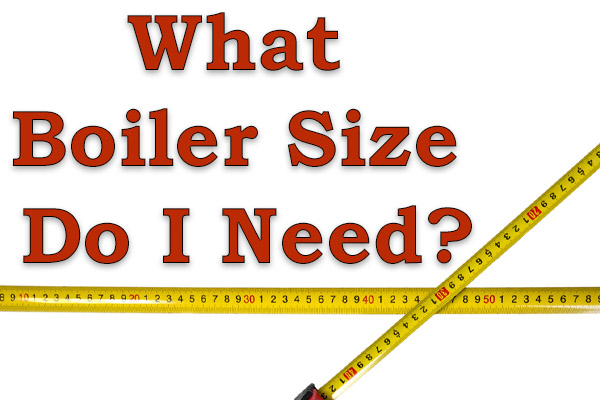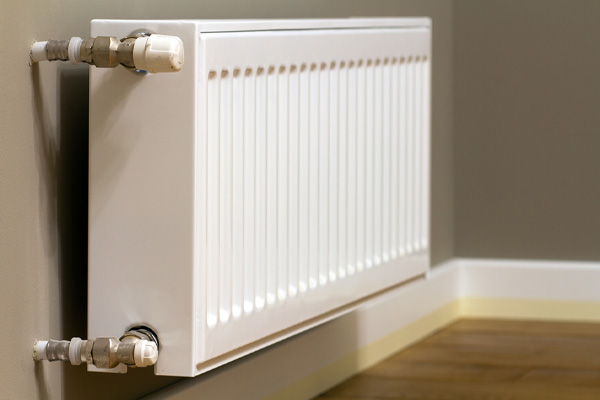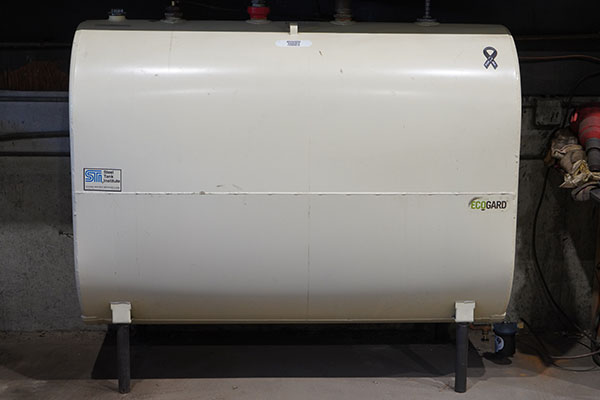Table of Contents
The warmth of your home is the essence of its comfort, especially as the chill of winter sets in. A reliable heating system is the key to ensuring a cozy living space during the colder months. However, it’s important to recognize that choosing a heating system isn’t a one-size-fits-all scenario. The biggest unit isn’t necessarily the best choice. Multiple factors must be weighed, and the expertise of an HVAC specialist is crucial for an informed decision. Keep reading to learn the intricacies of selecting the ideal boiler size and type for your home.
Determining the Right Boiler Size for Your Home

Selecting a boiler is more than a mere choice; it’s about finding a precise match for your needs. Given that boilers are a long-term investment, often exceeding ten years of service with proper maintenance, it’s crucial to prioritize compatibility, consistent performance, and optimal energy efficiency. Opting for a boiler that doesn’t fit your home’s requirements can be a source of continual annoyance, unforeseen expenses, and operational issues. To steer clear of such issues, it’s advisable to enlist the expertise of a local HVAC contractor who can provide the necessary guidance for a sound investment.
Why Boiler Size Considerations Are Important

When selecting a boiler, size pertains to more than just its physical stature. Disregard the boilers’ width, height, and length for the moment. The emphasis should be on the boiler’s energy output, quantified in kilowatts, which reflects its capacity to produce heat. Choose a boiler that is neither oversized nor undersized for your residence. Achieving this balance is critical in reducing energy wastage. This way, you’re not spending extra funds on unnecessary heating for your living space.
Key Influences on Boiler Sizing
The heating demand of a home is the driving force behind the need for a larger or smaller boiler. Ensuring the boiler size matches this demand is essential for maintaining a comfortable indoor environment. HVAC professionals have the tools to calculate a precise figure to guide your selection process. Experienced technicians are also adept at making on-the-spot estimations. Providing them with information on the number of radiators, the dimensions of your property, its layout, your family’s hot water usage, and the type of fuel available will lay the groundwork for choosing the right equipment. Let’s explore these variables in further detail.
Radiator Quantity

Evaluating the number of radiators is crucial when determining the suitable boiler size for your home. A standard four-bedroom house typically houses about ten radiators, aligning with a boiler capacity of 24 kilowatts for adequate heating. Smaller homes with fewer bedrooms might need less capacity, while larger homes, particularly those with extended families, may necessitate a boiler with a capacity of 35 kilowatts. Those with as many as twenty radiators or more may potentially need up to 42 kilowatts, as advised by HVAC professionals.
Property Size
The square footage of your home plays a significant role in choosing the right boiler. A larger home, with its substantial air volume, demands a heating system capable of generating more heat to maintain a comfortable indoor climate. Selecting a boiler that’s too small for a spacious property can lead to insufficient heating, resulting in discomfort during the colder peaks of winter.
Fuel Type

The type of fuel that powers your heating system is a critical factor in selecting a boiler. Many homes tap into the natural gas grid, while some depend on heating oil or liquefied petroleum gas from tanks situated on the property. The fuel choice can significantly influence the efficiency of your heating system. Modern boilers can harness renewable energy sources, such as solar power, offering an eco-friendly heating solution. For those mindful of their environmental footprint, opting for a system with a high AFUE rating is advisable.
Heat Loss
To ascertain the ideal boiler size for any home, heating engineers have refined their methodology to focus on the building’s heat loss rather than just its size. This advanced technique accounts for various elements that influence heat retention, including the number of windows and radiators, the type of insulation, floor area, and additional variables that affect how heat is conserved. This comprehensive evaluation yields a boiler size recommendation tailored to your home’s heating needs, even on the most frigid day of the year.
Bathrooms and Showers
A boiler with sufficient power is crucial for maintaining consistent water pressure, especially in homes with multiple bathrooms, without the drawback of increased energy consumption. In considering the size of your boiler, the number of bathrooms is a vital factor because they are typically areas with high hot water usage. Additionally, the number of residents and their bath and shower usage patterns will influence the boiler demand, guiding you to a model that can efficiently handle your household’s hot water needs.
Selecting the Appropriate Boiler Type for Your Home
When choosing a boiler, it’s vital to consider both its capacity and type. Homeowners usually have three main types to choose from, each with unique pros and cons. It’s important to consider the type of boiler you currently have and the space available for the new system. The next section offers an overview of each option.
- Combi Boilers: Combi boilers heat water on demand, eliminating the need for a hot water storage tank, which is ideal for smaller homes. They provide both hot water and central heating from one unit but can’t supply hot water to multiple outlets simultaneously. If you need hot water from various sources at once, consider other boiler types.
- Conventional Boilers: Conventional boilers have two tanks for cold and hot water storage. They heat water through fuel combustion and use a pump to transfer it to a cylinder, ready for use. Suitable for older properties, they are a practical choice if your home already has this system and it meets your heating and water needs.
- System Boilers: Ideal for homes with high hot water demands, system boilers draw water from the mains and store it heated in a cylinder. They don’t require a separate cold water tank, saving space. Unlike combi boilers, they can supply hot water to multiple outlets simultaneously without pressure drop, making them suitable for homes with multiple bathrooms.
The Downsides of Choosing an Oversized Boiler
Selecting a boiler that’s too large for your home can lead to a condition known as short cycling, where the boiler frequently switches on and off. This rapid cycling occurs because the oversized unit heats the space too quickly, prompting it to shut down soon after starting up, as the heat dissipates just as rapidly. This not only can cause radiators to overheat but may also contribute to accelerated wear and tear on the boiler’s components, potentially reducing the system’s overall lifespan.
The Drawbacks of an Undersized Boiler
An undersized boiler struggles to efficiently heat a home, often taking excessive time to reach a comfortable temperature, which can be particularly unwelcome after a long day. While it might achieve the desired warmth under normal conditions, its capacity may fall short during the harshest winter days, failing to provide sufficient heat. Additionally, in homes where hot water is in high demand simultaneously from multiple sources, a small boiler may quickly deplete its hot water supply, leading to inconvenience and discomfort.
Conclusion
Selecting the ideal boiler is a technical task. Informed homeowners usually end up more satisfied with their heating system. To sidestep costly missteps, it’s advisable to seek the expertise of a seasoned HVAC contractor and conduct thorough heat loss assessments before making your decision.
Call Lake Region Energy For Your Home Heating Needs

Lake Region Energy offers top-notch HVAC services in the region. We have the best professionally certified technicians who can perform exceptional heating and cooling services, such as boiler maintenance, air conditioning installations, and furnace repairs. Count on our knowledgeable and experienced techs to provide friendly, accurate, and safe services.
Our company guarantees affordable and quality heating and cooling services. We can suggest the best HVAC replacement system when needed and ensure it’s within your budget. We always prioritize indoor air quality, energy efficiency, comfort, and more. Don’t hesitate to call Lake Region Energy to schedule an appointment. Call us today for a free, in-home estimate.
For more information about our fuel deliveries and HVAC services, be sure to contact Lake Region Energy. You can click here to contact us, or you can call us at (207) 839-5500 to find out more. We offer a full line of heating and cooling repairs, maintenance services, and installations.
Related Articles:
